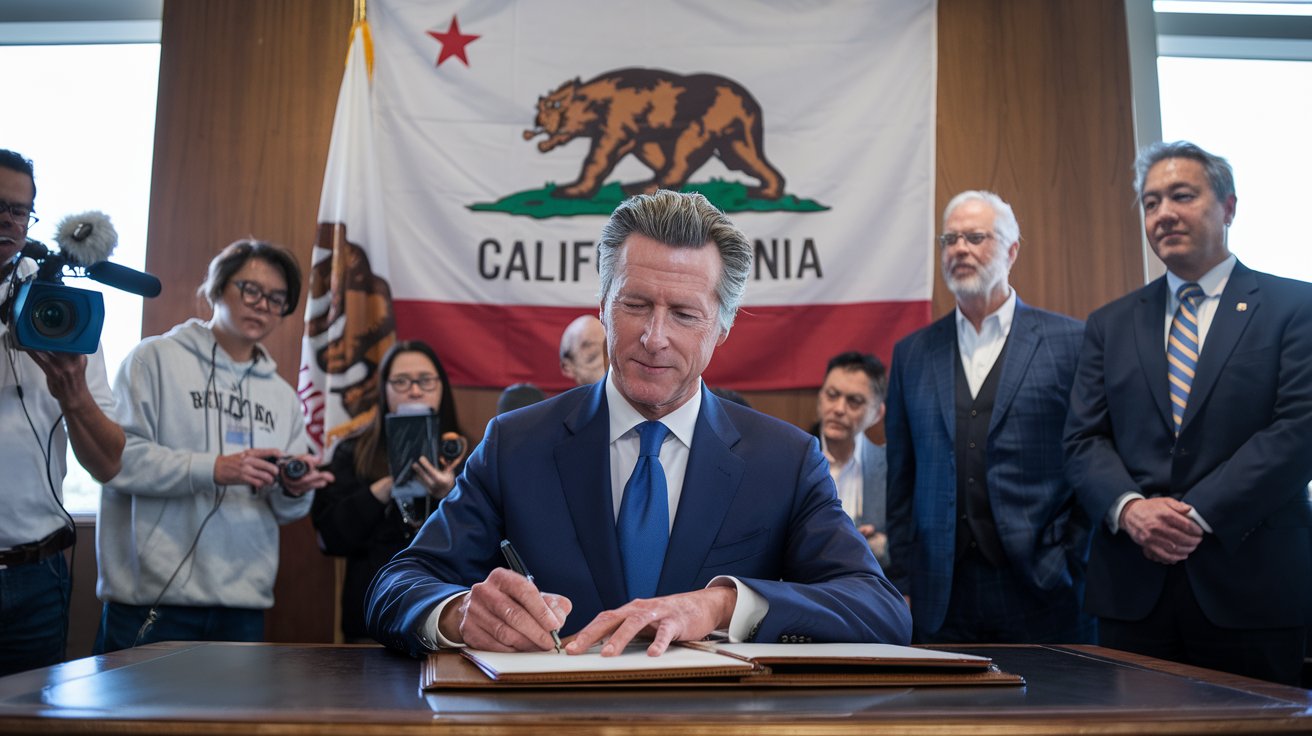
California Governor Gavin Newsom signed three landmark bills on Tuesday aimed at regulating the use of artificial intelligence (AI) in political advertising, particularly deepfakes, ahead of the 2024 election. The legislation comes in response to rising concerns about AI-generated content being used to spread disinformation and manipulate voter opinions during critical election periods.
The most significant of the new laws, which takes effect immediately, prohibits the creation and distribution of deepfakes related to elections 120 days before Election Day and 60 days after. The law gives courts the authority to stop the circulation of AI-generated false images or videos and impose civil penalties on those responsible.
“Safeguarding the integrity of elections is essential to democracy,” Gov. Newsom said in a statement, emphasizing the importance of maintaining public trust in an era of increasing disinformation. “These measures will help to combat the harmful use of deepfakes in political ads and other content, one of several areas in which the state is being proactive to foster transparent and trustworthy AI.”
One of the bills also requires large social media platforms to remove deceptive content created using AI, marking the first time such a law has been enacted in the United States. Additionally, political campaigns will now be required to publicly disclose if they are using AI-modified material in their advertisements.
Newsom signed these bills during a public event hosted by Salesforce in San Francisco, alongside the company’s CEO, Marc Benioff. The move was met with loud applause, highlighting broad support for the governor’s efforts to combat disinformation.
California, already a pioneer in AI regulation, was the first state to ban AI-manipulated media in elections in 2019. This latest action reaffirms the state’s leadership role in setting standards for AI governance in the U.S. and abroad. Industry experts note that California’s technology and AI measures often serve as blueprints for other states and federal lawmakers across the country.
With AI technologies rapidly advancing, there is growing concern that manipulated content could erode public trust in elections. “With fewer than 50 days until the general election, there is an urgent need to protect against misleading, digitally-altered content that can interfere with the election,” said Assemblymember Gail Pellerin, the author of the law banning election deepfakes.
Pellerin, along with other legislators, has expressed fears that AI-generated deepfakes could deceive voters and disrupt democratic processes. The passage of these bills comes on the heels of Gov. Newsom’s promise in July to crack down on AI misuse, following a deepfake video posted by Elon Musk on X (formerly Twitter), featuring altered images of Vice President Kamala Harris.
As the 2024 election approaches, California’s proactive stance against AI-driven disinformation sets a precedent for other states. These new laws signal a concerted effort to protect voters from deception and maintain the integrity of democratic processes in the digital age.